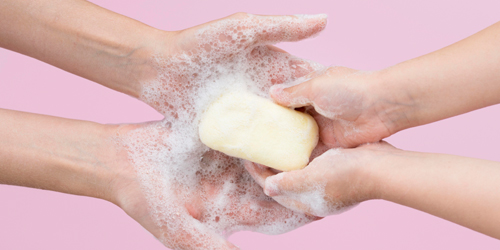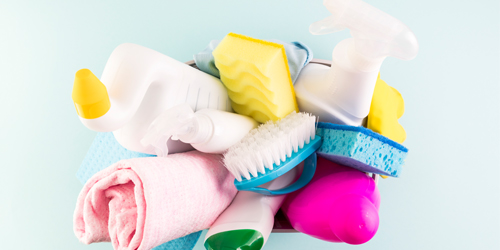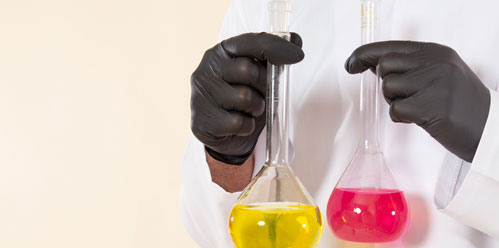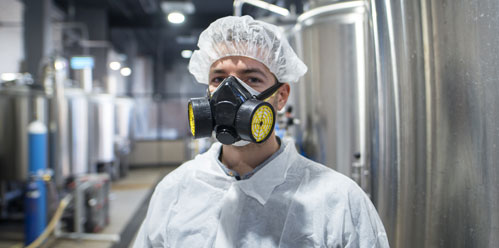Properties of Soaps
The general properties of soaps stand out with their cleansing nature of oil and dirt on the skin. There are many types of soap such as solid, liquid, face, shampoo and special purpose soaps.
General Characteristics of Soaps
We can summarize the general characteristics of soaps in ten points:
- Derived from Natural Sources: Soaps are made from vegetable or animal fats. These natural sources provide the essential ingredients for soap and keep them free from chemical additives.
- Minimal Effects on the Human Body: Since soaps are natural, they have minimal impact on the human body. This feature makes them skin-friendly and suitable for sensitive skin.
- Easily Biodegradable: Soaps can easily break down naturally. This quality makes them environmentally friendly as they can dissolve without causing water pollution.
- Do Not Cause Water Pollution: Soaps do not contribute to water pollution. Thanks to their natural ingredients, they dissolve in water without harming water sources.
- Environmentally Friendly: Soaps are harmless to the environment. Their natural composition and biodegradable properties make them eco-friendly.
- Cleansing Power Declines Over Time: Soaps lose their cleaning power over time. This means that the effectiveness of soap may decrease as time passes.
- Form Precipitates in Hard Water: Soaps can form precipitates with metal ions present in hard water. When soap combines with hard water, it may form a precipitate, which reduces its cleaning power.
- Can Damage Fabrics: Soaps can cause damage to clothes. Some soaps, in particular, may damage fabrics and cause colors to fade.
- More Effective in Hot Water: Soaps clean more effectively in hot water. Hot water helps soap dissolve and increases its cleaning power.
- Used for Centuries: Soaps have been used for thousands of years. They have long been preferred as a cleaning and hygiene product throughout history.
Soaps stand out with their natural and eco-friendly properties and have played a significant role in cleaning for thousands of years. However, they have some limitations, such as forming precipitates in hard water and damaging clothes. These features have allowed soaps to remain an effective cleaning tool for a long time.
Types of Soaps
Soap is a widely used product in personal care and cleaning. Various types of soaps are available depending on different needs and preferences. Here are the most common types of soaps:
Bar Soaps
Bar soaps are produced with soap-based formulations and are usually found in block or slice form. These soaps are ideal for daily cleaning and come in different formulations depending on skin type.
- Natural Bar Soaps: Made with organic and natural ingredients. They usually do not contain chemical additives and can be skin-friendly.
- Antibacterial Soaps: Soaps containing ingredients that are effective against bacteria. They are commonly used in hygienic environments.
Liquid Soaps
Liquid soaps offer an easy and hygienic option for use. They are usually found in pump bottles and waste less due to their liquid form.
- Hand Soaps: Specially formulated to clean hands. They may have moisturizing or antibacterial properties.
- Bath Soaps: Liquid soaps used for body cleaning and may vary depending on skin type.
Facial Soaps
Facial soaps are specially formulated for the sensitive skin of the face. They usually contain gentler and skin-specific ingredients.
- Moisturizing Facial Soaps: Soaps that contain moisturizing ingredients for the skin. Suitable for dry skin.
- Oil-Balancing Facial Soaps: Specially formulated for oily skin and help to clean excess oil.
Shampoo Soaps
Shampoo soaps are designed for hair cleaning and are usually made with shampoo formulations. Different varieties may be available based on hair type.
- Moisturizing Shampoo Soaps: Soaps that maintain hair moisture balance and have softening properties.
- Hair Loss Prevention Shampoo Soaps: Contain special ingredients to reduce hair loss.
Special Purpose Soaps
These soaps are formulated for specific health or aesthetic needs.
- Aromatherapy Soaps: Soaps containing essential oils that provide relaxing effects.
- Exfoliating Soaps: Soaps with granules that help remove dead skin cells from the skin.
Each type of soap is designed to meet specific skin and cleaning needs. Users can choose the right type of soap based on their skin type, cleaning needs, and personal preferences.












